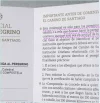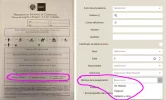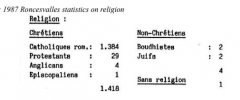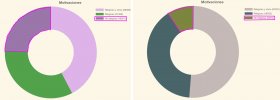Anniesantiago
Veteran Member
- Time of past OR future Camino
- 2006 to date: Over 21 Caminos. See signature line
In the past, when getting my Credential, I was asked why I was walking.
If for spiritual or religious reasons, I could get a Compostela.
If just walking for the heck of it, I could get a pretty piece of paper saying I'd completed the pilgrimage.
Some of my Credentials even have a space for the answer to that question.
But I notice this new Credential does not have that question.
Do they no longer ask if you are walking for religious reasons?
Or is it still a requirement?
If for spiritual or religious reasons, I could get a Compostela.
If just walking for the heck of it, I could get a pretty piece of paper saying I'd completed the pilgrimage.
Some of my Credentials even have a space for the answer to that question.
But I notice this new Credential does not have that question.
Do they no longer ask if you are walking for religious reasons?
Or is it still a requirement?































